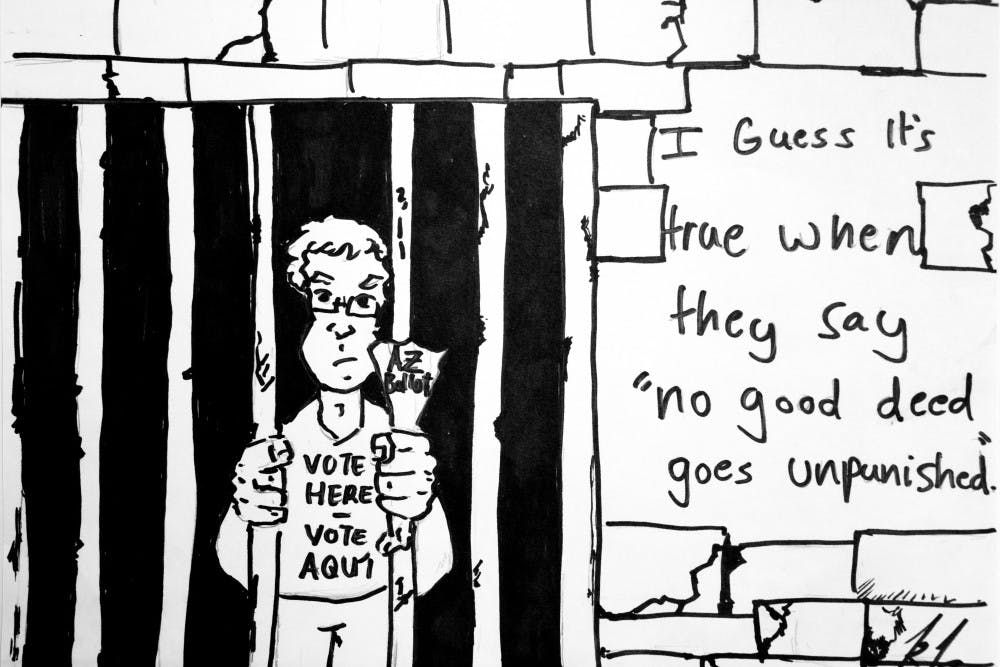The Arizona House of Representatives passed a measure this week that aims to curtail instances of voter fraud in the early ballot process.
We, The State Press Editorial Board, believe that preserving the integrity of our voting process is of the utmost importance. But we stand in opposition to House Bill 2023, which would limit who can submit an early ballot for a voter.
The bill reads, “House Bill 2023 prohibits the collection of voted or unvoted early ballots from another person.” This bill marks the third attempt of the Arizona Legislature to pass similar measures against voter fraud.
Rep. Michelle Ugenti (R-Scottsdale) is the main sponsor of H.B. 2023, which was introduced by the committee on elections.
Individuals who would otherwise have a difficult time voting stand to lose the most if this legislation is signed into law. It is not a feasible option for many Arizonans to vote directly at a polling place, to drop off an early ballot during polling hours or to mail in their ballot.
Read more: Here's how to register to vote for your state's presidential primary
For this reason, groups commonly collect early ballots to turn in on behalf of voters. If H.B. 2023 is put in place, someone who turns in an early ballot for another person stands to receive up to one year in prison and a $150,000 fine.
Arizona students, Hispanics and African-Americans all stand to lose their voice in Arizona elections if this law is enacted. Elderly, multi-job workers and those who live in rural areas could be silenced by legislators if they are unable to find the means to cast votes.
Arizona has a deplorable voter turnout. In 2014, one-third of eligible voters cast a ballot. That amounts to 2.97 million eligible voters who did not participate in the 2014 election cycle.
According to a report by The Arizona Republic, from 2005-2014 there were 34 cases of voter fraud in Arizona. Of the 34 cases, none of the individuals involved were convicted of a felony. Furthermore, despite state officials stating their concern over illegal immigrants casting ballots, only two cases of such were recorded in the ten-year span.
By superimposing the voter fraud data with election turnout data, we can compare the number of voter fraud cases with the voting-eligible population who did not vote. The results are staggering. For every one case of voter fraud in Arizona, there are over 500,000 eligible voters who do not vote.
If our state legislators desire to preserve the integrity of Arizona’s voting system, they should not enact legislation that addresses the 34 cases of fraud in the last 10 years if it will exacerbate the more pervasive problem of constituent’s failure to vote.
If we have more than 500,000 people who don’t vote for every one case of voter fraud, our efforts should be focused on solving this extensive problem rather than intensifying it.
Related Links:
Voter fraud isn't the problem with elections
US Supreme Court takes up Arizona voter ID law
Want to join the conversation? Send an email to opiniondesk.statepress@gmail.com.
Keep letters under 300 words and be sure to include your university affiliation. Anonymity will not be granted.
Like The State Press on Facebook and follow @statepress on Twitter.




